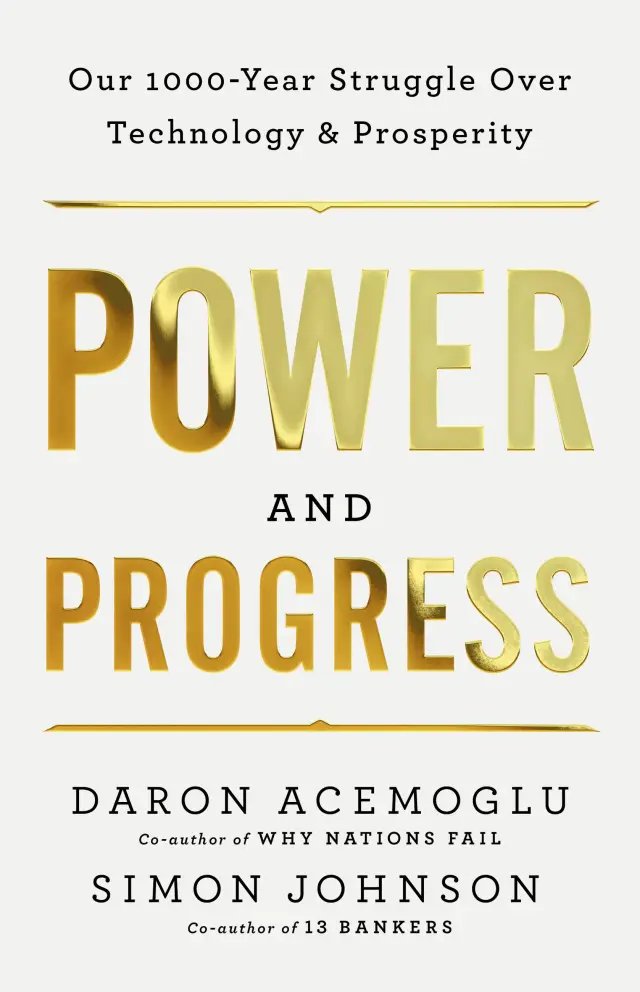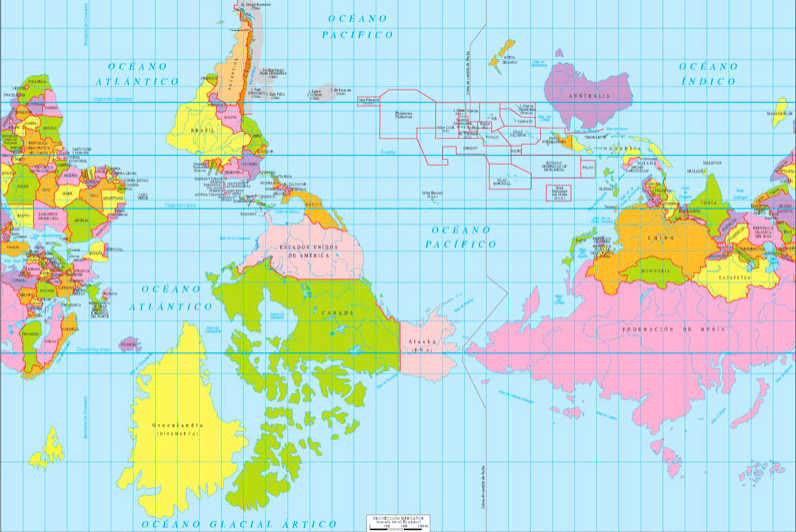Here are my notes on #PowerAndProgress, the book by @DAcemogluMIT & @baselinescene
The story of the industrial revolution & post-WWII Welfare State in well known. So I focus on their general arguments & discussion of post-1980 trends (Chs. 8-11).🧵
The story of the industrial revolution & post-WWII Welfare State in well known. So I focus on their general arguments & discussion of post-1980 trends (Chs. 8-11).🧵

I found P&P engaging, stimulating & thought-provoking. Some of its points are not new, but are articulated in ways that are useful. It offers a balanced view, highlighting the potential of new technologies but documenting concerning trends. It combines analysis & prescription.
To set the baseline, it is useful to consider this figure (with US data). 👇
Something happened in 1980 (the prior social pact was broken) that delinked gains in economic productivity from wages earned by workers. This led to growing income inequality.
Something happened in 1980 (the prior social pact was broken) that delinked gains in economic productivity from wages earned by workers. This led to growing income inequality.

Many now bet on technology as the solution to various problems. But P&P questions a hyper-optimistic view about technology & raises doubts about the potential contributions of some technologies to growth and issues general reservations about their contribution to social goals.👇 

P&P specifies the conditions under which technology generates broad positive outcomes and the kinds of technology that are best for society.👇 

P&P also argues strongly that the current “direction of technology” is not a positive one and offers some arguments about why this is so.👇 

P&P is largely focused on the US, with side glances to Europe and China. However, it makes a few points about the impact of technology in the developing world.👇 

Finally, P&P turns to politics, drawing inspiration from the Progressive Era in the US, & offers policy prescriptions (e.g., market incentives, breaking up big tech, tax reform, investing in workers, government leadership, etc.). These focus nearly entirely on the US.
Comments. P&P helps us think about some of the key economic challenges of our day. It counters the naïve optimism of many about the promises of technology. It gets at the roots of the misuse of technology-the power of “modern oligarchs.” It clarifies when technologies are useful.
Comments. P&P says little about technology in the developing world & choices in those settings.
It also glosses over how politics & democracy work, & thus how we move from policy prescription to policy decision & implementation.
Hopefully others will fill these gaps.
It also glosses over how politics & democracy work, & thus how we move from policy prescription to policy decision & implementation.
Hopefully others will fill these gaps.
• • •
Missing some Tweet in this thread? You can try to
force a refresh
















